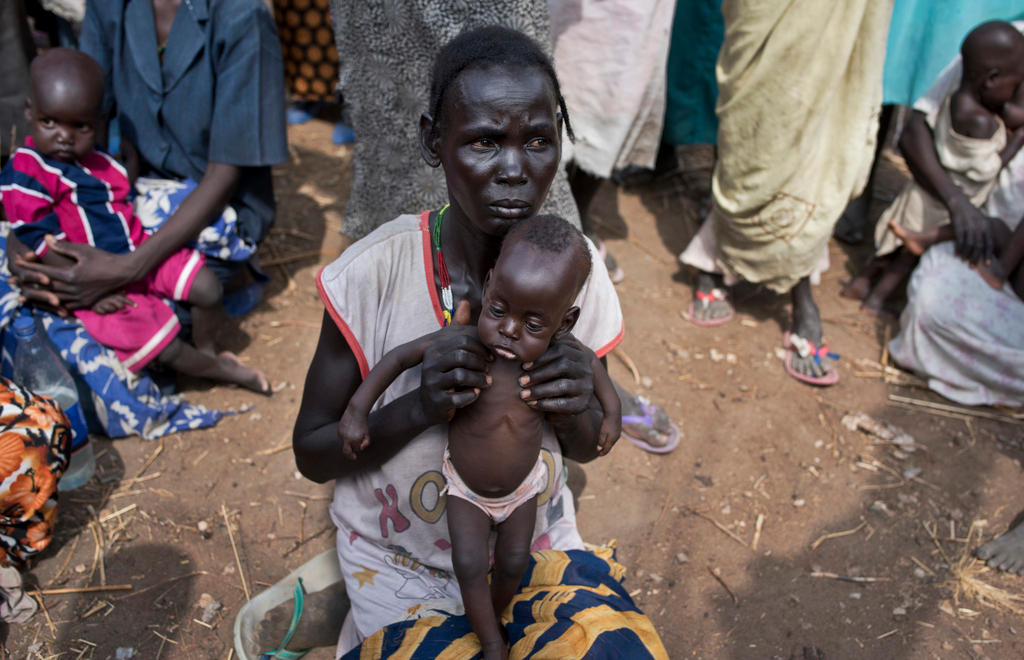
Swiss aid conference sounds the alarm on hunger

Hunger is currently the biggest humanitarian problem in the world, Swiss Foreign Minister Ignazio Cassis said on Friday at the annual conference of Swiss humanitarian aid.
“We produce 4,600 calories per day per person, which is double the food needed to feed the whole world,” he said. “And yet one person in nine goes to bed every night with an empty stomach, it is absurd.”
“Hunger is a source of conflict and instability,” Cassis continued in a speech to some 1,000 people gathered in the Swiss town of Biel for the conference of the Swiss Agency for Development and CooperationExternal link (SDC)’s humanitarian aid department and the Swiss Humanitarian Aid UnitExternal link.
The key focus this year, according to the governmentExternal link, was how Switzerland and the international community engage in tackling hunger, its causes and its complexities.
+ Read more about Swiss humanitarian aid
Manuel Sager, head of the SDC, said that access to food was becoming a more widespread problem. “In rural areas people are being driven from their fields, and in the cities the food supply is repeatedly interrupted by fighting,” he told a panel discussion.
He said that in February 2017 Switzerland provided an additional CHF15 million to Africa and Yemen for UN aid air drops rather than aid delivery by road where convoys are often blocked.
The executive director of the World Food Programme (WFP), David Beasley, added that acute hunger is spreading dramatically, by up to 55% in the past two years alone. “Especially because of armed conflicts,” he said, stressing that the spiral of conflict and hunger creates more instability and in turn more violence, misery and forced migration.

In compliance with the JTI standards
More: SWI swissinfo.ch certified by the Journalism Trust Initiative

























You can find an overview of ongoing debates with our journalists here . Please join us!
If you want to start a conversation about a topic raised in this article or want to report factual errors, email us at english@swissinfo.ch.